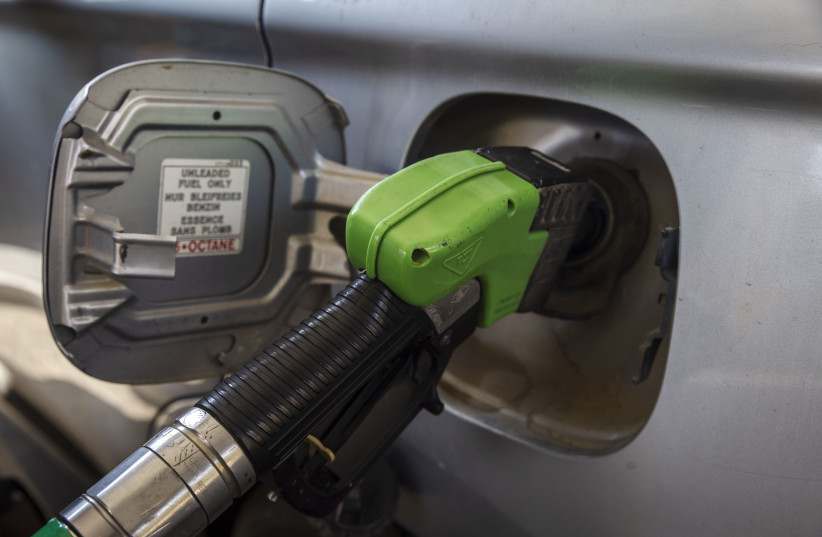Gas prices will be going up once again as of July 1, from NIS 7.72 to NIS 8.08 per liter of 95-grade octane, the Energy Ministry announced on Wednesday.
This is the latest in a series of fuel-price hikes, this one constituting an extra 36 agorot per liter.
Gasoline prices broke an eight-year record high in February alongside prices of oil due to the war in Ukraine. March saw a decrease in oil prices worldwide, but Israel’s prices remained unchanged.
Fuel-price spikes are currently being felt worldwide, and Israel is also beginning to feel the repercussions.
Tax reduction on fuel - not enough for consumers
The latest recorded spike comes despite the Finance Ministry’s announcement on the extension of the 'excise tax' on fuel and diesel, as part of the attempt to “combat” the high cost of living in Israel.

The tax reduction for fuel and diesel by half a shekel will be extended for another six months, until the end of 2022, Finance Minister Avigdor Liberman said in a Tuesday memo.
The Israel Tax Authority and the Treasury are currently working on extending the tax reduction, which stands at 50 agurot per liter, until August 9.
Starting August 10, a further reduction of another half a shekel will be put in place, reducing gas rates from that date by one shekel until November 15.
World economy dominos
The continually rising price of gas can be traced back to the onset of the war in Ukraine, a catalyst event that set off a staggering chain of world-economy dominos.
International sanctions levied against Russia in response to its aggression and war-mongering have put a major strain on the oil market, as the former Soviet nation is one of Europe's primary oil exporters.
In turn, the price of gasoline everywhere ballooned and though in many nations, gas prices have been regulated somewhat, the price in Israel has remained unfortunately high.
Zachy Hennessey contributed to this report.
